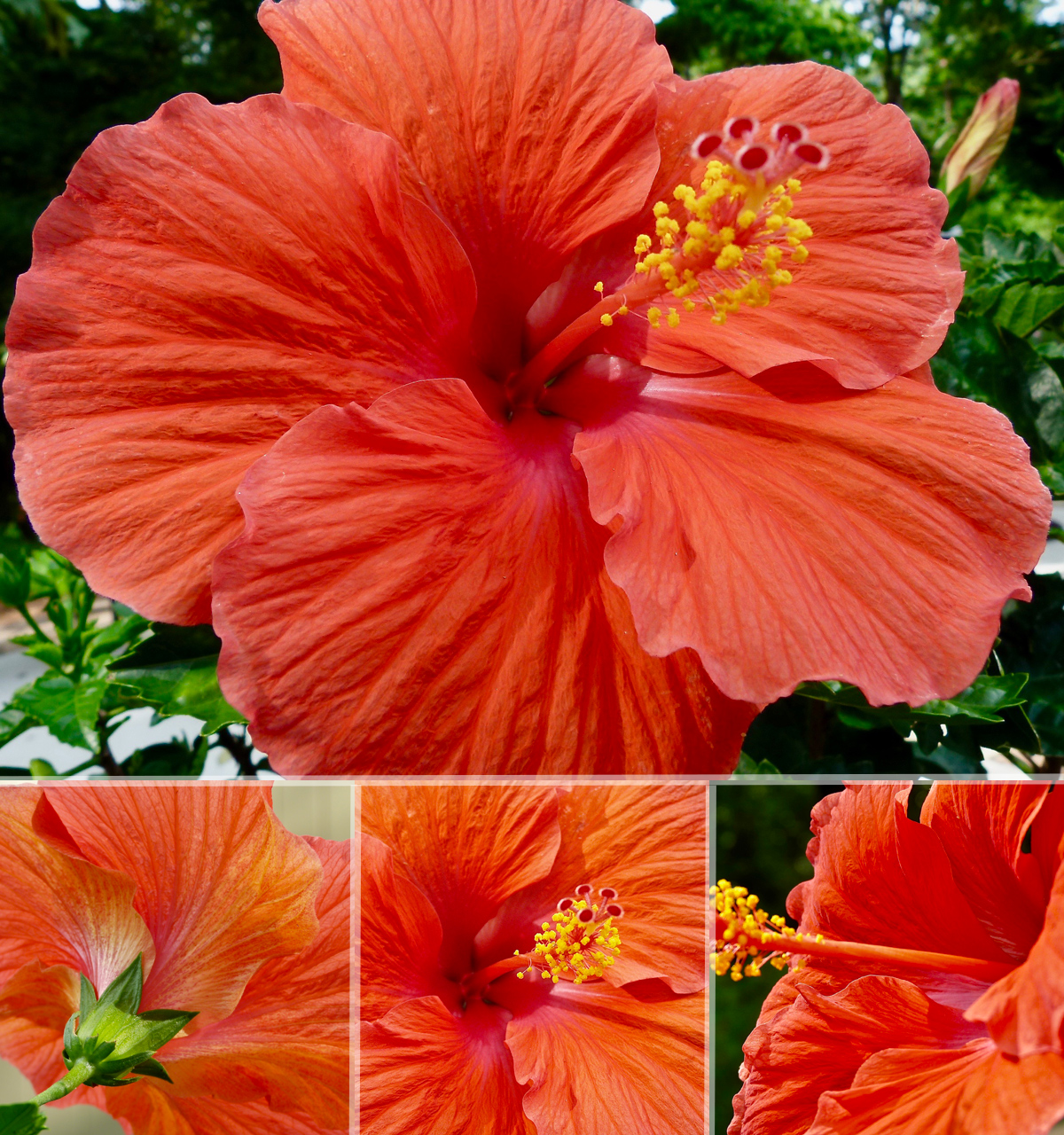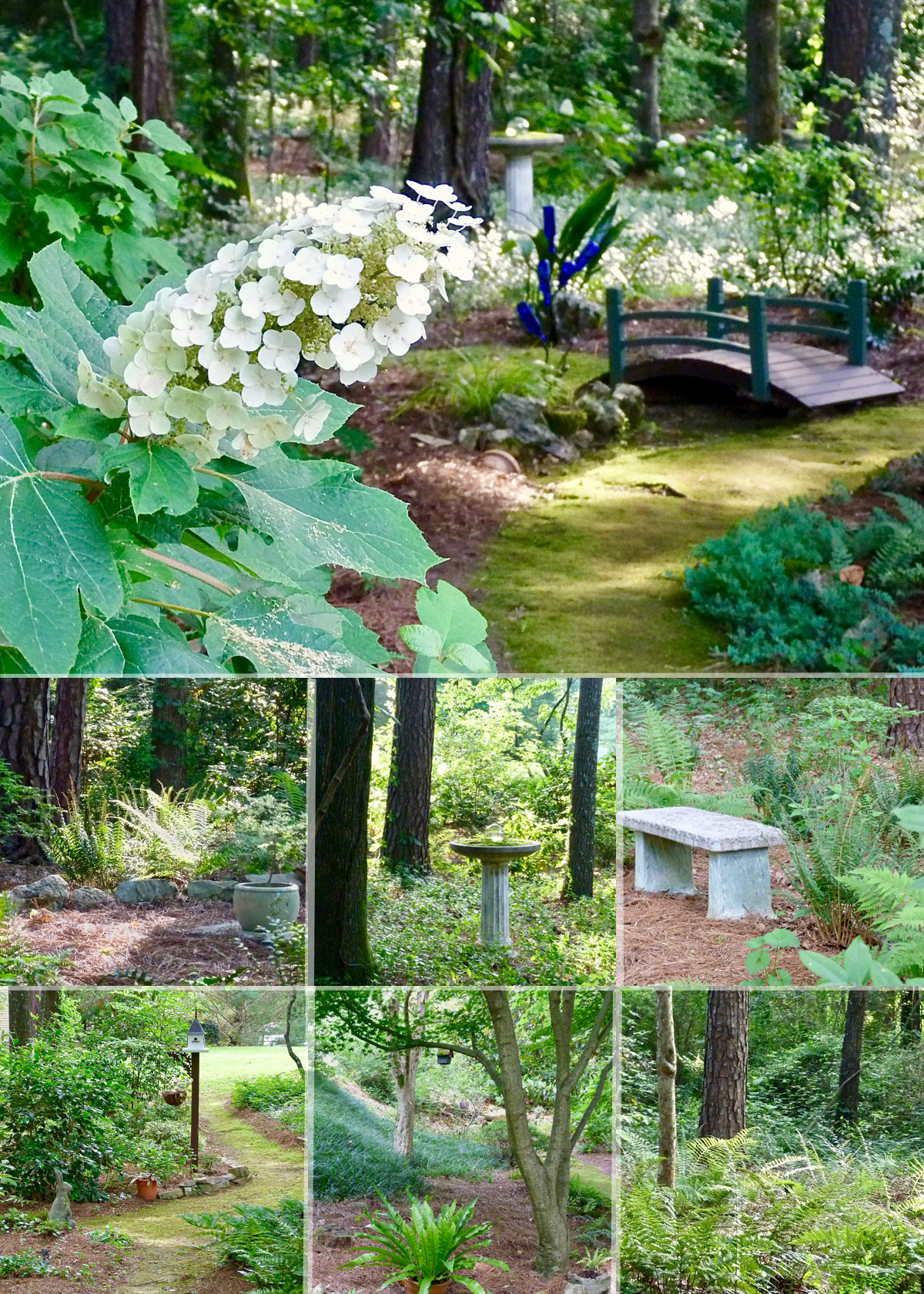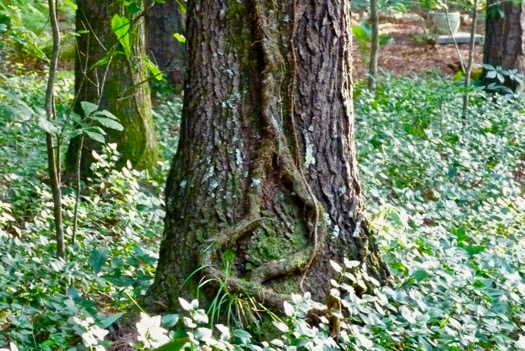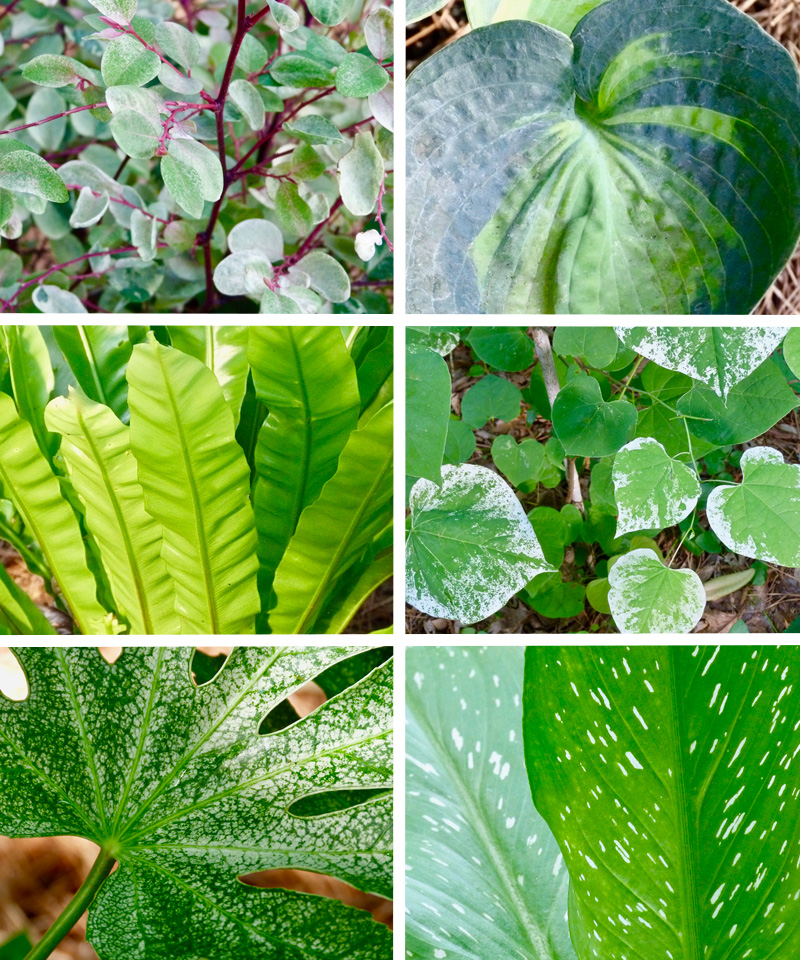Summer is here, and the deep greening of the garden has begun. A few perennials and annuals celebrate our heat and humidity and provide splashes of color, but these hot months are all about foliage in its myriad forms and variegations.
First, some color: This tropical hibiscus is so beautiful that I plan to bring it inside later to overwinter. For now it sits on our patio, and I have a good view of it from our kitchen and dining room.
Here are a few more June blooms: The large top photo is from my new pollinator garden, with purple Veronica and perennial Helenium. Do you see the bee? Small photos left to right: Hummingbird plant, Dicliptera suberecta, is also known as Uruguayan firecracker plant; One of the very best yellow reblooming daylilies is Hemerocallis 'Going Bananas'; Hydrangea quercifolia 'Snowflake' has double blooms, unlike the common oak leaf hydrangea, which has single blooms; 'Anthony Waterer' Spirea has May - June blooms but will produce more flowers if spent blooms are removed.
The large top photo is from my new pollinator garden, with purple Veronica and perennial Helenium. Do you see the bee? Small photos left to right: Hummingbird plant, Dicliptera suberecta, is also known as Uruguayan firecracker plant; One of the very best yellow reblooming daylilies is Hemerocallis 'Going Bananas'; Hydrangea quercifolia 'Snowflake' has double blooms, unlike the common oak leaf hydrangea, which has single blooms; 'Anthony Waterer' Spirea has May - June blooms but will produce more flowers if spent blooms are removed.
When the day is nearly done - but not quite - the sun sends shafts of light through the woodland garden. It is my favorite time of the day. Sparks flash under and over and through the foliage; and like a soul lifted out of darkness, the garden is transformed. 


Here are closer views of some of the woodland plants: Clockwise from top left: Breynia disticha is called Snow on the Mountain bush and also Snowbush. It is not hardy in my area. It is in a pot, and I will bring it inside for winter; Hosta 'Rhino Hide'; Cercis canadensis 'Whitewater' is a weeping variegated redbud tree; Zantedeschia albomaculata, or White Spotted Leaf Calla Lily; Fatsia 'Spider's Web'; Bird's nest fern (Asplenium nidus) is another plant in my garden that is not hardy. It is in a pot so I can bring it in for winter.
Clockwise from top left: Breynia disticha is called Snow on the Mountain bush and also Snowbush. It is not hardy in my area. It is in a pot, and I will bring it inside for winter; Hosta 'Rhino Hide'; Cercis canadensis 'Whitewater' is a weeping variegated redbud tree; Zantedeschia albomaculata, or White Spotted Leaf Calla Lily; Fatsia 'Spider's Web'; Bird's nest fern (Asplenium nidus) is another plant in my garden that is not hardy. It is in a pot so I can bring it in for winter.
 Clockwise from top left: Peacock moss (Selaginella uncinata) and Athyrium filix-femina, commonly called lady fern, grow next to a mossy rock; A close-up of the Peacock moss; Native Trillium and Autumn Fern (Dryopteris erythrosora);Hostas are beginning to bloom - I don't remember the name of this one!
Clockwise from top left: Peacock moss (Selaginella uncinata) and Athyrium filix-femina, commonly called lady fern, grow next to a mossy rock; A close-up of the Peacock moss; Native Trillium and Autumn Fern (Dryopteris erythrosora);Hostas are beginning to bloom - I don't remember the name of this one!
Finally, here is a Daddy Longlegs, stretched out, taking it easy on a hosta leaf. This non-venomous insect has 6 legs and is not a true spider:
Happy Gardening!